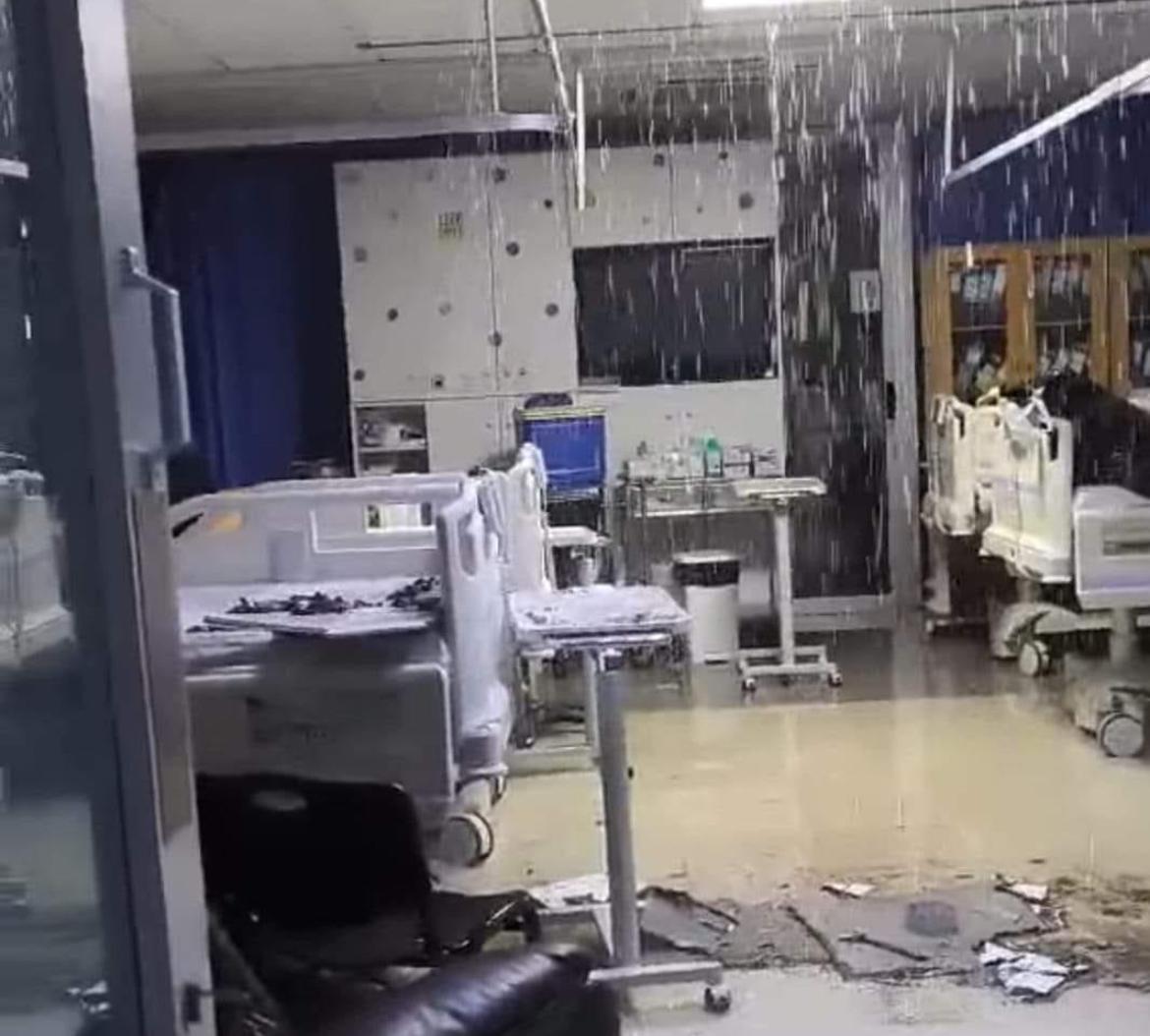The Paphos general hospital, which flooded during heavy rain on Saturday night, was “built with a lot of shoddy work”, the town’s mayor Phedonas Phedonos said on Sunday.
“No one ever got serious about it, to plan a serious renovation project, to identify the problems or to fix them,” he said, adding that the building is “scrappy” and that there have been previous instances of ceilings leaking during rain.
“A lot of buildings are 35 years old and do not have problems like this,” he said, before adding that his municipality has been warning of the hospital’s condition for “about five years”.
He then added, “especially now with Gesy, it is convenient for some people that the state hospitals do not function properly, so that others benefit.”
“In general there is a terrible inefficiency inside the state and within successive governments regarding these matters. If the rain had carried on for longer yesterday, all the floors would have flooded and the hospital would have become a lake,” he said.
Health Minister Michael Damianos had earlier promised upgrades to hospitals across Cyprus during a visit to the hospital.
He said the state health services’ organisation (Okypy) already “has the action plan” for hospital buildings to be upgraded, and that “it will be supported by us, and we must try to avoid all these problems.”
Floods had hit the thalassaemia ward and the cardiology laboratory on Saturday night during storms which hit Paphos,
The hospital’s director Spyros Georgiou told the Cyprus News Agency the floods had been caused by “torrential rain” but moved to offer reassurances that no patients were “endangered” by the flood.
Damianos confirmed this during his visit to the hospital on Sunday, saying the hospital is “operating as normal”, and that the thalassaemia ward will resume its normal operations on Monday.
On this matter, he pointed out that no thalassaemia patients were directly impacted by Saturday night’s floods “as the unit wasn’t open anyway”.
To this end, he said “no particular problems have been created” by the flood, and that “the important thing is that we are trying to prevent these disasters”.
“It appears that this disaster was caused by the upgrading of the hospital in another part of the building, which had allowed water to enter the units in question,” he said, before adding that all the faults “will be repaired in the next few hours”
Μετά τα όσα οι πολίτες "παρέδωσαν" στις Κυβερνήσεις επί Covid "προστατεύοντας την ανθρώπινη ζωή" αυτά ΔΕΝ ΓΙΝΟΝΤΑΙ ΑΝΕΚΤΑ και όσοι έχουν ευθύνη πρέπει να πάνε σπίτι γιατί απέτυχαν παταγωδώς. Ντροπή και αγανάκτηση. pic.twitter.com/Nd4F6m0VFq
— Chr.Tsouroullis (@tsouroullis) November 3, 2024
Earlier, Georgiou had said that services offered at the thalassaemia ward and the cardiology laboratory were “immediately moved” to another part of the hospital, and that a cleaning operation was commenced in the area, but admitted that the flow of water inside the hospital building is continuing.
He added that a “general cleaning operation” will be undertaken on Sunday morning, and that off-duty staff would be called in to ensure the hospital’s operations continue uninterrupted throughout the day.
“This was an act of God which was unforeseeable,” he said.
The hospital was then visited by government spokesman and Paphos native Konstantinos Letymbiotis on Saturday night. He said that state health services organisation (Okypy) executive director Kypros Stavrides would also visit the hospital on Sunday with the aim of recording all the damage caused.
Once this has been done, Letymbiotis said, “all the necessary measures will be taken to bring the affected areas back into operation as soon as possible, and to repair all the damage.”
Asked about the cause of the flood, he said he had been informed that some of the hospital’s gutters had been blocked and that as such, water found its way inside the building’s upper floors.
He did also note that the amount of rain which fell was “particularly heavy”, and said it was “fortunate that the patients on the wards were not affected”.
He also said Health Minister Michael Damianos would visit the hospital on Sunday, with Damianos saying on Saturday night that he was “saddened” by the flood.
“I requested that Okypy record the points of danger in all hospitals with the aim of immediately repairing them and ensuring their operation. Patients’ safety was, is, and will remain our main priority,” he said.







Click here to change your cookie preferences